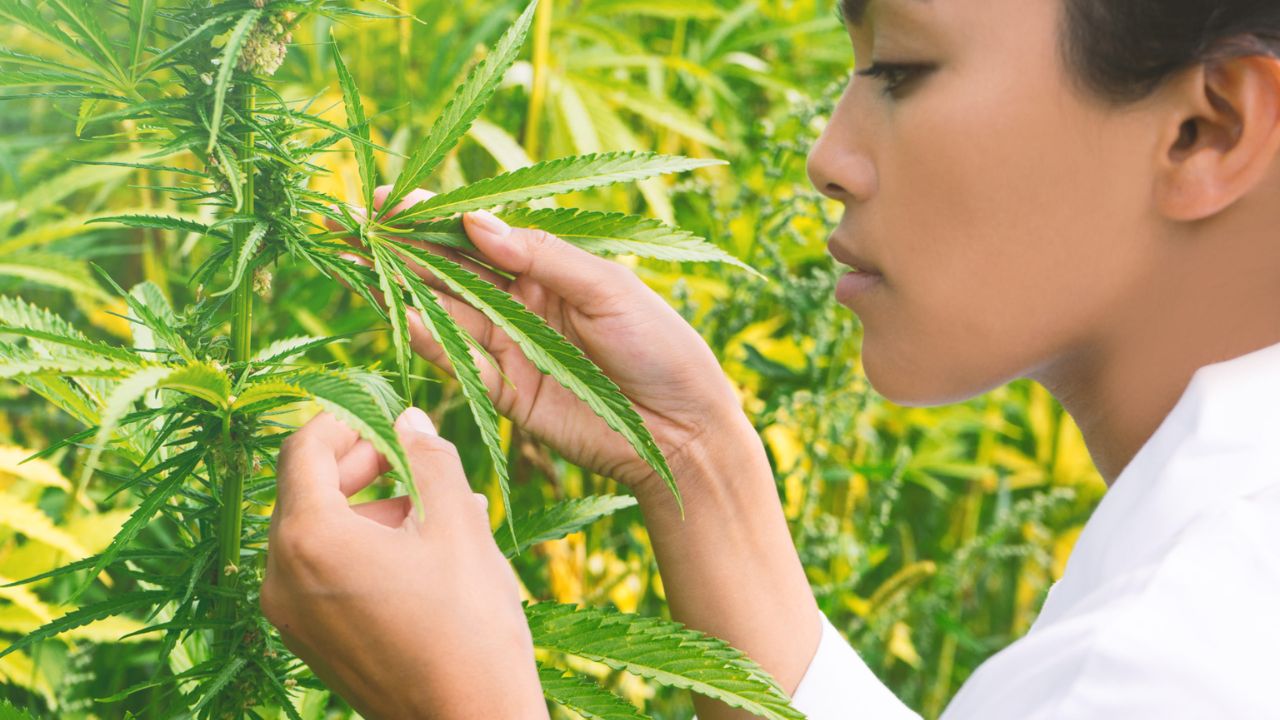Over Watering Weed Plants are a bit tricky to grow, and they require specific attention in terms of their environment, water, soil, and many other factors. Water is a critical aspect of cannabis plant growth, but overdoing it can be detrimental to your crops. For novice growers, it can be easy to overwater your beloved plants, thinking that providing more water is better without knowing the risks. In this article, we will be concerned about the dangers of overwatering your weed plants.
Over Watering Weed Root Rot
One of the most common problems caused by overwatering seedlings your cannabis plants is root rot. When there is too much moisture in the soil, it becomes a breeding ground for fungi that love living in excessively wet soil environments. These fungi will start to grow on the roots of your plants, making them unable to absorb water and nutrients properly. This results in stunted growth, yellowing of the leaves, and, eventually, death of the plant. This problem is irreversible, and once your cannabis plants have suffered from root rot, you will need to start fresh.
Nutrient Deficiencies
Overwatering also flushes nutrients out of your soil and causes them to be unavailable to the roots. The added moisture in the soil makes it harder for the roots to uptake the nutrients that they need to grow. The excess water will push out the nutrients and wash them away, leading to nutrient deficiencies in your plants. This can be seen in yellowing leaves or plants that are not growing as well as they should.
Over Watering Weed Oxygen Deprivation
When you overwater your plants, the soil becomes waterlogged, leaving no room for oxygen. Roots require oxygen to survive and function properly; when there is none, they will begin to suffocate. When roots cannot breathe, they stop functioning and die, overwatered weed plant leading to plant death. Lack of oxygen can also cause problems in the long term, leading to stunted growth and weakened plants.
Soil Compaction
When you overwater your plants, you allow the soil to become compacted. The added weight and pressure from the water can cause the soil to evolve tightly packed, making it difficult for roots to push through and grow. Compacted soil can also cause problems with water drainage, leading to the issues above of root rot and oxygen deprivation.
Environmental Factors
Overwatered seedling can also lead to a host of other environmental concerns, including fungal and bacterial growth in your grow area, issues with humidity, and problems with temperature regulation. All of these can contribute to further problems with your plants, such as pests, disease, and mold growth.
Causes of Over Watering
Over watering your weed plants can lead to several issues that can negatively affect their growth. As a beginner, you may tend to water them excessively since you want to keep your plants hydrated, thinking that more water is better. However, it’s crucial to note that weed plants require the right amount of water, just like any other plant. Over watering occurs for several reasons, such as watering too frequently, using poor-quality soil, and not ensuring proper drainage. Before steeping your plants, you need to check the soil moisture level to avoid over-watering.
Effects of Over Watering
Over watering your weed plants can lead to several negative effects, such as stunted growth, yellowing leaves, and root rot. When you over water your plants, the roots become waterlogged, making it challenging for them to absorb the necessary nutrients and oxygen. Consequently, your plants may develop yellow leaves, sag, and eventually die if the situation is not corrected. Root rot can also occur when the roots are left in a saturated environment, leading to decay and death of the roots.
Prevention Measures for Over Watering
Prevention is always better than cure, and the same applies to preventing over watering your weed plants. To avoid over watering, you need to check the soil moisture level before watering, ensuring that the top layer of soil is dehydrated before watering again. When watering, ensure that you water only until the soil is thoroughly soaked and then let it drain. You can also improve the drainage by using high-quality soil that has good drainage qualities, ensuring that the containers have drainage holes, and avoiding using saucers to catch the excess water.
How to Treat Over Watered Plants
If you’ve already your over watered plant, it’s not the end of the world. You can still save them by taking some measures to correct the situation. First, you need to stop watering your plants immediately and let them dry out. You can also use a fan to help dry out the soil faster. If your plant has developed root rot, it’s crucial to remove the affected roots and repot the plant in fresh soil. You can also ensure proper aeration by adding perlite or sand into the soil, which helps improve drainage.
Conclusion
Over watering your weed plants can be a frustrating experience, especially for beginners. However, with the right knowledge and prevention measures, you can avoid this common mistake and help your plants grow healthy and strong. We hope that this article has been informative and that you now have a better understanding of over watering, its causes, effects, and how to prevent and treat it. Remember to always check your soil’s moisture level, ensure proper drainage, and water only when necessary. Happy growing!
FAQ
Will overwatered weed plants recover?
You certainly can. Giving overwatered plants some time between waterings and starting slowly until things feel normal again is the best course of action. Verify that potted cannabis plants have an easy way for water to drain out of the bottom.
Do weed plants droop after watering?
It’s not always as easy as it seems to water cannabis. A grower frequently encounters the problems of overwatering and underwatering. Growers should distinguish between “drooping” and “wilted” cannabis leaves since they have different causes. Overwatering is frequently the cause of drooping leaves.
Does overwatering stunt growth?
Too much moisture in the soil causes plants to lose oxygen, which pushes the roots to die and the plant to become weaker. Yellowing leaves and stunted, sluggish development are signs of over irrigation. Plants may experience leaf burn or scorch.
How do overwatered plants look?
A plant that has received too much water would probably grow limp, drooping, yellow or brown leaves rather than crispy, dry leaves, which indicate insufficient water. Wet soil and wilting leaves typically indicate the onset of root rot, which prevents the roots from absorbing water. 2.
Can overwatering cause bud rot?
Bud rot forms inside the buds when water present is abundant. After the affected sections of the plants with cannabis bud rot are cut off, they should be disposed of separately from the remaining plants in a sealed bag. Grey mold will immediately develop on the plant as soon as any signs show up.



